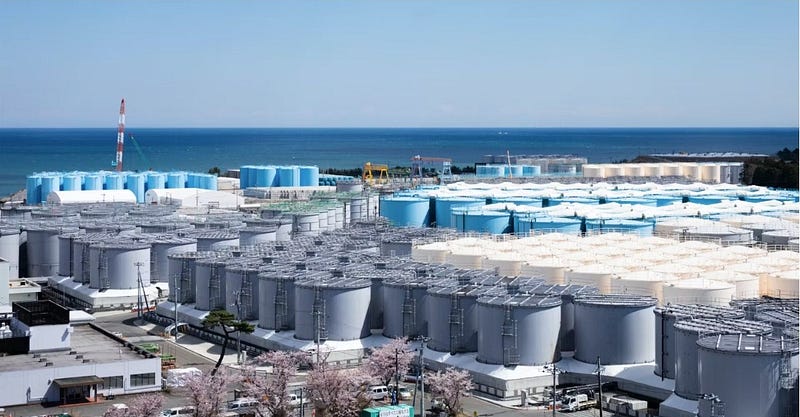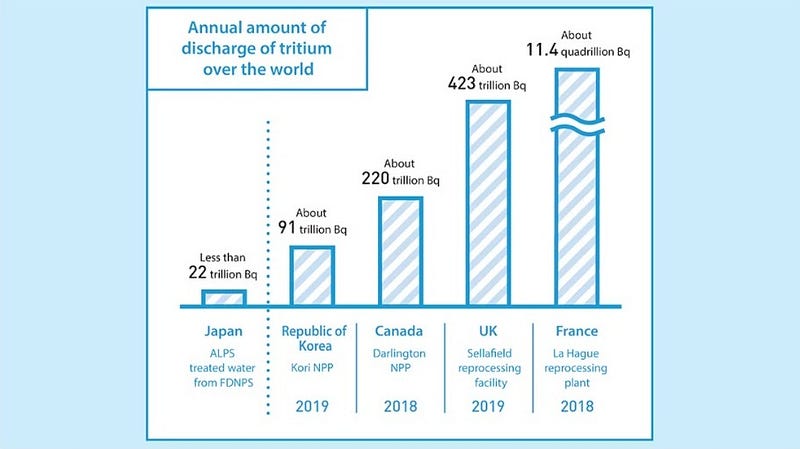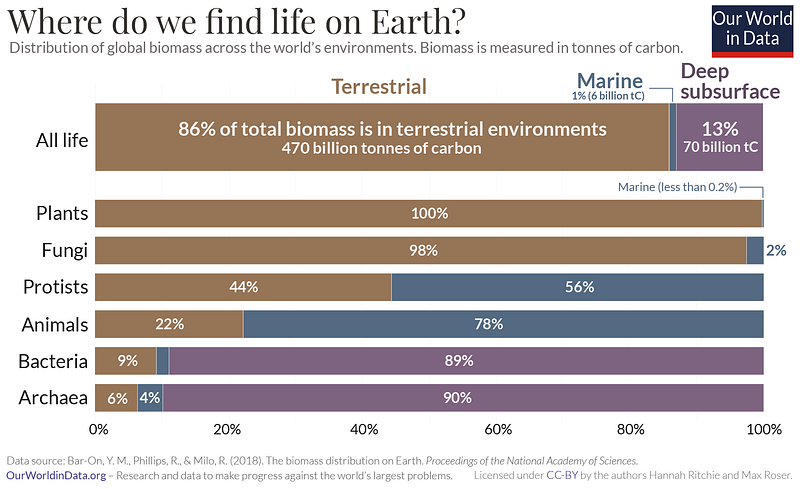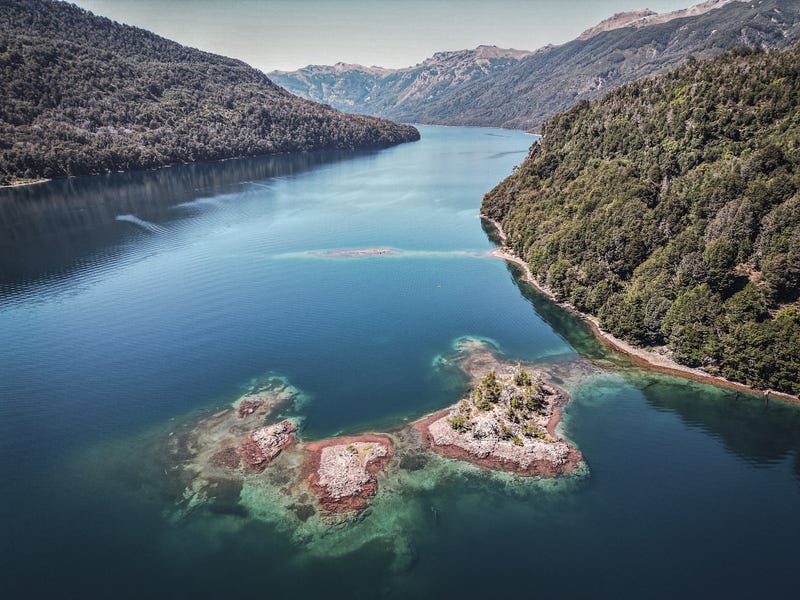Japan's Release of Fukushima Nuclear Wastewater: Implications for the Planet
Written on
The Reality of Water Conservation and Natural Sources
When I venture into the mountains or by the lake, I always have my telescopic rubber cup and camelback filled with water. If I feel parched, I first seek out a natural water source such as a stream or spring. If there's none in sight, I reluctantly turn to the water that carries a plastic-like aftertaste from my pack. During the sweltering heat, a refreshing swim in the lake becomes necessary. This is the typical outdoor experience in Patagonia—a routine we sometimes take for granted but may soon find to be a privilege.
A Catastrophic Event and Its Aftermath
Reflecting on the tragic events of 2011, when a 9.1-magnitude earthquake and tsunami devastated Japan, claiming over 19,000 lives, we recall the nuclear meltdown at the Fukushima power plant. This disaster forced the evacuation of over 100,000 residents, with radioactive water contaminating the Pacific Ocean and even reaching California, albeit at levels deemed harmless. In response, Japan has been storing approximately 1.37 million tons of water from Fukushima, equivalent to 548 Olympic-sized swimming pools.
On August 24, 2023, the Japanese government commenced the gradual release of this contaminated water into the Pacific Ocean, a process projected to extend over the next thirty years. Tokyo Electric Power Company (TEPCO) intends to discharge 31,200 tons of treated water by March 2024, a fraction of the volume currently stored near Fukushima. The urgency stems from the need to decommission the aging power plant, requiring the emptying of storage facilities that are already at 98% capacity. Officials express concerns about limited space and the risk of another earthquake that could compromise stored water before treatment.

Radioactive Contamination and Environmental Impact
Prior to its release, the contaminated water undergoes treatment in multiple standalone chambers designed to extract specific radioactive isotopes. Despite these efforts, the water will still contain trace amounts of radioactive contaminants that cannot be eliminated. Japanese officials assure that the wastewater's radioactivity will remain significantly below international health standards. A report from the International Atomic Energy Agency (IAEA) indicates that the environmental and health impacts of the wastewater will be negligible. However, many view Japan's actions as a continuation of its historical practice of using the Pacific Ocean as a disposal site for nuclear waste.
The primary concern lies with tritium, a radioactive isotope that cannot be removed during treatment. TEPCO representatives have stated that the released water will have tritium levels of just 1,500 Becquerels per liter—well within the World Health Organization's recommended limit of 10,000 becquerels for drinking water. Nevertheless, tritium can accumulate within the food chain, raising concerns about potential cancer risks and fertility issues from ingestion. Timothy Mousseau, a biologist studying tritium, emphasizes the uncertainty surrounding the environmental implications of a significant tritium discharge.
The Ripple Effects on Fisheries and Economy
These apprehensions are not unfounded. Despite facing accusations of hypocrisy regarding their own nuclear wastewater releases, China has implemented a total ban on importing all aquatic products from Japan, effective immediately. TEPCO’s president, Tomoaki Kobayakwa, acknowledged the company's commitment to compensating businesses adversely affected by this decision. The local economy, particularly fisheries and tourism in Fukushima, is still grappling with recovery from the disaster, and there are fears that this new release could exacerbate their struggles. The local fish catch has dwindled to only one-fifth of its pre-disaster levels, partly due to reduced fish populations.
Radiochemist Kenneth Buesseler, a member of the advisory panel for the Pacific Islands Forum, argues that Japan has yet to demonstrate that its treatment process can reliably eliminate harmful compounds from the wastewater. He advocates for exploring alternative methods to disposal rather than rushing to release the water. Many experts contend that the urgency to discharge the water is unwarranted, questioning Japan's choice of the most economical disposal route at the expense of environmental integrity and the well-being of neighboring nations. Once released, this decision cannot be reversed.
Mixed Reactions and Global Responses
Proponents of the release argue that we are regularly exposed to low levels of tritium through various channels, including tap water, air, and precipitation. It's noteworthy that other nuclear facilities worldwide also discharge tritiated water into oceans and rivers at even higher concentrations than those expected from Fukushima.

Initial resistance from the Pacific nations was strong. Critics and activists expressed significant concern over the planned water release. However, Japan’s extensive advertising campaign has swayed some opinions, with Fiji’s Prime Minister Sitiveni Rabuka publicly supporting the initiative.
Nevertheless, skepticism persists among others, including Vanuatu’s foreign minister and a former legislator from the US Commonwealth of the Northern Mariana Islands. Many continue to worry about the implications of decisions that affect lives without complete transparency.
The Wider Context of Environmental Crisis
A quick glance at social media reveals distressing images—nuclear plumes, vanishing glaciers, and climate tipping points becoming reality. Additional calamities, such as refinery explosions and collapsing buildings, paint a grim picture of our world in crisis. It’s easy to attribute these events to natural phenomena or human error, but the underlying issue is systemic.
We are collectively at fault, as our values and societal structures translate into institutional failures. We are in a deep crisis yet remain in denial, treating alarming developments as routine. Rather than acknowledging the urgency of our situation, we retreat into our digital bubbles while chaos unfolds around us. The release of nuclear wastewater into the ocean raises critical questions about our understanding of potential side effects. This issue is part of a larger narrative involving ocean acidification, heatwaves, and marine currents, as we approach the 1.5°C threshold for global warming. Furthermore, three out of four species on Earth reside in aquatic environments.

The stark truth is that we are living in an era of unprecedented failures across the globe—from the United States to Europe, Japan, China, Australia, and Argentina. This domino effect of failures extends from individual behaviors to broader social cohesion, creating a chaotic landscape.
Nature, a relentless force, will continue to present challenges. Climate change is a conflict we cannot overcome through aggression. Our responses are futile against nature's might, which is not our enemy but rather a reflection of our own actions. We are undermining our own existence by contaminating the very resources we depend on.
As I carry my rubber cup, I remain reminded of the value of radiation-free water.

Drinkable radiation-free lake in Patagonia (photo by author)
Where Do The Unprecedented Climate Records of a Melting World Come From?
Warnings from Antarctica and South America reverberate worldwide, raising awareness of the climate crisis.
The first video titled "Fukushima: Japan releases nuclear wastewater into Pacific Ocean - BBC News - YouTube" provides an overview of Japan's decision and its implications.
The second video titled "Japan begins releasing treated Fukushima radioactive water into ocean - YouTube" details the commencement of this controversial operation.
Thank you for your thorough reading and support!
If you crave more insights into climate change, scientific progress, and geopolitics with a Patagonian twist, subscribe to the newsletter Antarctic Sapiens and dive into thought-provoking content weekly.